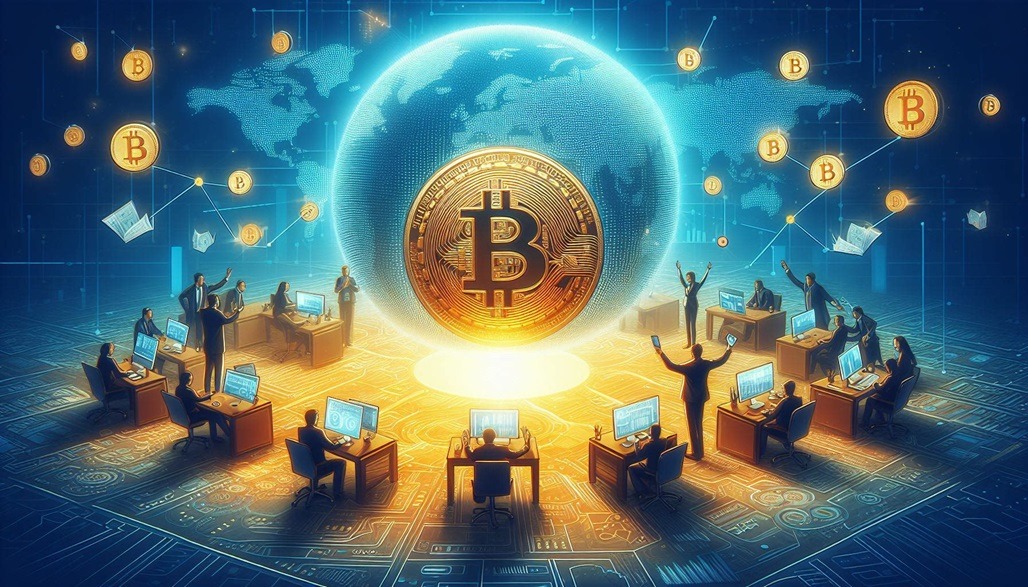The Rise of Offensive Memes And Why They’re Popular and Controversial
Offensive memes have taken the internet by storm, becoming both widely popular and highly controversial. These memes often push the boundaries of what is considered acceptable, sparking debates about their impact on society. While some find them humorous and relatable, others see them as harmful and offensive.
Key Takeaways
- Offensive memes often cross the line of decency, perpetuating harmful stereotypes and triggering negative emotional responses among social media users.
- Memes are built to go viral, but only the best ones do. The most successful memes tend to be those that are funny, timely, and relatable—usually sparking widespread sharing.
- Is there more to internet memes than meets the eye? The science of these viral mash-ups reveals why they are so effective at spreading ideas quickly.
- As memes convey meaning through association rather than explicit argument, not all extreme-right memes are clearly violent, hateful, or racist.
- Antisemitic memes in image results highlight vulnerabilities in search engines, enabling offensive content to rise to the top of search results.
Understanding Offensive Memes
Definition and Characteristics
Offensive memes often cross the line of decency, perpetuating harmful stereotypes and triggering negative emotional responses among social media users. These memes are designed to be provocative, using humor and shock value to grab attention. They frequently target sensitive topics, making them controversial and divisive.
Historical Context
The concept of memes dates back to the 1970s, but the rise of the internet has given them a new platform. Early internet forums and message boards were breeding grounds for these types of memes. Over time, they have evolved, becoming more sophisticated and widespread.
Psychological Impact
Offensive memes can have a significant psychological impact. They can reinforce negative beliefs and attitudes, contributing to a culture of intolerance. For some, these memes provide a sense of belonging to a community that shares their views. However, for others, they can be deeply hurtful and damaging.
Offensive memes are not for the faint of heart or those who get offended by everything. They can be a double-edged sword, offering humor to some while causing pain to others.
The Appeal of Offensive Memes
Humor and Shock Value
Offensive memes often push boundaries, creating a mix of humor and shock that grabs attention. People find them funny because they break social norms, making them stand out in a sea of content. This shock value can make these memes memorable and shareable.
Relatability and Virality
Memes are built to go viral, but only the best ones do. The most successful memes tend to be those that are funny, timely, and relatable—usually reflecting common experiences or feelings. This relatability helps them spread quickly across social media platforms.
Community and Belonging
Sharing offensive memes can create a sense of community among like-minded individuals. It builds solidarity and a feeling of belonging, as people bond over shared humor and perspectives. This sense of community can be particularly strong in niche online groups.
Offensive memes often cross the line of decency, perpetuating harmful stereotypes and triggering negative emotional responses among social media users. Despite this, their appeal lies in their ability to connect people through shared humor and shock value.
Controversies Surrounding Offensive Memes
Ethical Concerns
Offensive memes often cross the line of decency, perpetuating harmful stereotypes and triggering negative emotional responses among social media users. These memes can be damaging, especially when they target vulnerable groups. The ethical debate centers on whether humor justifies the harm caused.
Legal Implications
The legal landscape around offensive memes is complex. While freedom of speech is protected, there are limits when it comes to hate speech and defamation. Some countries have stricter laws, making it illegal to share content that incites violence or hatred. This creates a gray area where the legality of a meme can vary widely depending on the jurisdiction.
Public Backlash
Public backlash is common when offensive memes go viral. Social media platforms often face criticism for not acting quickly enough to remove harmful content. This backlash can lead to changes in platform policies and increased scrutiny of user-generated content. The controversy is further fueled when high-profile individuals, like celebrities, share or endorse these memes, amplifying their reach and impact.
The Role of Social Media in Spreading Offensive Memes
Social media platforms play a huge role in spreading offensive memes. These platforms use algorithms that often prioritize content based on engagement, which can make offensive memes go viral quickly. Algorithms are designed to keep users engaged, and shocking or controversial content often gets more attention.
Algorithms and Virality
Algorithms on social media platforms are designed to show users content that will keep them engaged. This means that posts with high engagement, like offensive memes, are more likely to be shown to a wider audience. The more people interact with these memes, the more they spread.
Platform Policies
Different social media platforms have different policies regarding offensive content. Some platforms are stricter and remove offensive memes quickly, while others are more lenient. This inconsistency can make it hard to control the spread of such content.
User Responsibility
Users also play a part in spreading offensive memes. When people share or comment on these memes, they help them reach a larger audience. It’s important for users to think about the impact of sharing offensive content and to act responsibly online.
Offensive memes often cross the line of decency, perpetuating harmful stereotypes and triggering negative emotional responses among social media users.
The Impact of Offensive Memes on Society
Perpetuation of Stereotypes
Offensive memes often cross the line of decency, spreading harmful stereotypes. These memes can reinforce negative ideas about certain groups, making it harder to fight against prejudice. This can lead to a more divided society where people are judged based on these harmful images.
Influence on Public Opinion
Memes are powerful tools for spreading ideas quickly. They can shape how people think about important issues, sometimes in a misleading way. When offensive memes go viral, they can influence public opinion in a negative direction, making it harder to have honest discussions.
Mental Health Effects
Seeing offensive memes can hurt people’s feelings and mental health. These memes can make people feel isolated or targeted, especially if they belong to the group being mocked. Over time, this can lead to serious mental health problems like anxiety and depression.
Offensive memes can have a lasting impact on society, affecting how we see each other and how we feel about ourselves. It’s important to be aware of their potential harm and to think carefully before sharing them.
Counteracting Offensive Memes
Educational Initiatives
Educational programs can play a crucial role in combating offensive memes. Schools and community centers can host workshops to teach people about the harmful stereotypes these memes often perpetuate. By raising awareness, individuals can learn to recognize and reject offensive content.
Policy Changes
Governments and social media platforms need to implement stricter policies to curb the spread of offensive memes. This could include more rigorous content moderation and penalties for those who create or share harmful material. Effective policies can significantly reduce the reach of such content.
Community Efforts
Communities can come together to counteract the negative impact of offensive memes. This can be done through online campaigns that promote positive and inclusive content. By fostering a sense of community and belonging, people are less likely to engage with harmful memes.
Community-driven initiatives can create a safer online environment by encouraging positive interactions and discouraging the spread of offensive material.
Case Studies of Offensive Memes
Notable Examples
One of the most infamous cases of offensive memes involves antisemitic content. These memes often exploit data voids to rise to the top of search results, highlighting vulnerabilities in search algorithms. Another example includes memes that perpetuate harmful stereotypes, crossing the line of decency and triggering negative emotional responses among social media users.
Public Reactions
Public reactions to offensive memes are often mixed. While some people find them humorous or relatable, others see them as deeply harmful. Studies on the computational analyses of toxic memes have significantly grown over the past five years, showing a rising awareness of their impact. Public backlash can lead to calls for stricter regulations and platform policies to curb the spread of such content.
Long-term Consequences
The long-term consequences of offensive memes can be severe. They can perpetuate harmful stereotypes and influence public opinion in negative ways. Over time, these memes can contribute to a more toxic online environment, affecting the mental health of those exposed to them. In some cases, they can even lead to legal actions or changes in platform policies to address the issue.
Offensive memes often cross the line of decency, perpetuating harmful stereotypes and triggering negative emotional responses among social media users.
In our latest section, “Case Studies of Offensive Memes,” we dive into the impact and implications of controversial memes in today’s digital landscape. These case studies reveal how seemingly harmless jokes can have far-reaching consequences. Want to learn more? Visit our website for the full article and other insightful content.
Conclusion
Offensive memes are a big part of the internet today. They can be funny and spread quickly, but they also often hurt people and spread bad ideas. While some people enjoy them for the humor and connection they bring, others see them as harmful and mean. It’s important to think about the impact of these memes and remember that what we share online can affect others. As we keep using the internet, we should try to be more careful and kind with what we post and share.
Frequently Asked Questions
What are offensive memes?
Offensive memes are images or videos shared online that often cross the line of decency. They can spread harmful stereotypes and make people feel bad.
Why do people find offensive memes funny?
Some people think offensive memes are funny because they are shocking or unexpected. They might also find them relatable or share them to feel like part of a group.
Are there any rules about sharing offensive memes?
Different social media platforms have their own rules about what can be shared. Some have policies against offensive content, but these rules are not always enforced.
Can offensive memes have a negative impact?
Yes, offensive memes can hurt people’s feelings and spread harmful ideas. They can also make stereotypes worse and affect how people see certain groups.
What can be done to stop the spread of offensive memes?
Stopping offensive memes can be tough, but people can help by not sharing them. Education, policy changes, and community efforts can also make a difference.
Why do offensive memes go viral?
Offensive memes often go viral because they are designed to be shared. They can be funny, timely, and relatable, which makes people want to pass them along.
Stay informed with daily updates from Blockchain Magazine on Google News. Click here to follow us and mark as favorite: [Blockchain Magazine on Google News].
Get Blockchain Insights In Inbox
Stay ahead of the curve with expert analysis and market updates.
latest from tech
Disclaimer: Any post shared by a third-party agency are sponsored and Blockchain Magazine has no views on any such posts. The views and opinions expressed in this post are those of the clients and do not necessarily reflect the official policy or position of Blockchain Magazine. The information provided in this post is for informational purposes only and should not be considered as financial, investment, or professional advice. Blockchain Magazine does not endorse or promote any specific products, services, or companies mentioned in this posts. Readers are encouraged to conduct their own research and consult with a qualified professional before making any financial decisions.

 Bitcoin
Bitcoin  Ethereum
Ethereum  XRP
XRP  Tether
Tether  Solana
Solana  Dogecoin
Dogecoin  USDC
USDC  Cardano
Cardano  Lido Staked Ether
Lido Staked Ether  TRON
TRON  Avalanche
Avalanche  Stellar
Stellar  Sui
Sui  Toncoin
Toncoin  Wrapped stETH
Wrapped stETH  Chainlink
Chainlink  Wrapped Bitcoin
Wrapped Bitcoin  Shiba Inu
Shiba Inu  Content Bitcoin
Content Bitcoin  Hedera
Hedera  Polkadot
Polkadot  WETH
WETH  Bitcoin Cash
Bitcoin Cash  LEO Token
LEO Token  Uniswap
Uniswap  Bitget Token
Bitget Token  Litecoin
Litecoin  Hyperliquid
Hyperliquid  Pepe
Pepe  Wrapped eETH
Wrapped eETH  USDS
USDS  NEAR Protocol
NEAR Protocol  Ethena USDe
Ethena USDe  Aptos
Aptos  Internet Computer
Internet Computer  Aave
Aave  POL (ex-MATIC)
POL (ex-MATIC)  Ethereum Classic
Ethereum Classic  Monero
Monero  Cronos
Cronos  Mantle
Mantle  Render
Render  MANTRA
MANTRA  Dai
Dai  Bittensor
Bittensor  Artificial Superintelligence Alliance
Artificial Superintelligence Alliance  Algorand
Algorand 



